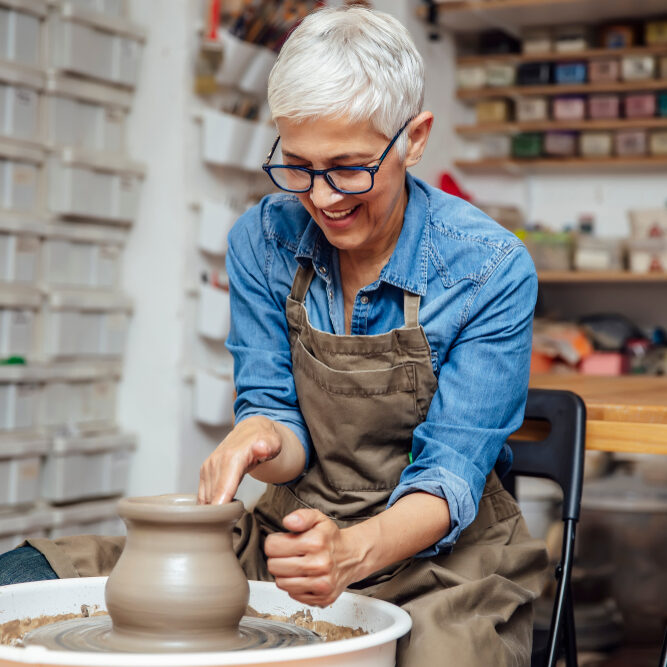Why are hobbies important?
Having a hobby is important as it helps you take a break from your daily routine and indulge in something you enjoy. Hobbies might look like playing a musical instrument, reading, exercising, painting, baking, and much more. Having a hobby can encourage a good work-life balance and may allow you to explore your interests and passions outside of the workplace.
Why are hobbies beneficial to have?
There are several benefits to having a hobby. Firstly, it helps in reducing stress levels. Engaging in a hobby helps in relaxing the mind and body, which in turn, reduces anxiety and stress. Secondly, it helps in boosting creativity. Hobbies such as painting, writing, or playing an instrument helps in expressing oneself creatively. This one can be especially helpful when your workplace is analytical, structured, or high-stress. Thirdly, hobbies can help improve mental health. Hobbies act as a form of therapy and help in improving one’s mental well-being. Lastly, it helps in building social connections. Joining a hobby, group, or club, may allow you to meet like-minded individuals and increase your social network/community.
How To Pick a Hobby
Start by assessing your interests. 1. Write down your interests
The first step in assessing your interests is to make a list of all the things that you enjoy doing. This could be anything from playing sports to reading books. It’s important to be honest with yourself and not to limit yourself to what you think you should be interested in. This list will be the foundation of your exploration into potential career paths and hobbies.
2. Identify your strengths and weaknesses
Once you have a list of your interests, it’s important to identify your strengths and weaknesses. What are you good at? What do you struggle with? This will help you to narrow down your list and determine which areas you have the most potential for success. It’s also important to consider areas where you might need to improve your skills to pursue certain interests. Keep in mind that being good at something is not always the goal for everyone. Sometimes the hobbies that you have never tried because of your worry of failure can turn out to be the best fit.
3. Consider your lifestyle and budget
Finally, it’s important to consider your lifestyle and budget when assessing your interests. Some hobbies and careers require a significant investment of time and money. For example, if you’re interested in photography, you’ll need to invest in a camera and other equipment. If you’re interested in starting your own business, you’ll need to consider the financial risks involved. It’s important to be realistic about what you can afford and what you’re willing to sacrifice to pursue your interests.
Three Tips To Consider When Looking for a New Hobby
1. Research
One way to explore new hobbies is by doing some research. You can start by browsing the internet or reading books to find out about different hobbies that interest you. You can also ask friends or family members about their hobbies and see if any of them sound appealing to you. It’s essential to research each hobby thoroughly to understand the skills required, the cost involved, and the time commitment needed. Facebook groups are a great place to start. You can type an interest into the search bar and find a community that offers different opportunities relating to that interest. Bumble BFF’s is also another online community platform that you can use to build your social network.
2. Attend Workshops or Classes
Another great way to explore new hobbies is by attending workshops or classes. This is an excellent opportunity to learn from experienced instructors and meet others who share the same interests as you. Many community centers, schools, and local organizations offer classes or workshops on various hobbies, such as painting, dancing, and cooking. Attending such classes will help you learn the basics of the hobby and decide if you want to pursue it further.
3. Try Out Different Activities & Commit to the Process
Trying out different activities is the best way to explore new hobbies. You can start with simple activities that don’t require any special equipment or skills, such as hiking, gardening, or bird watching. Once you’ve found something that interests you, you can then invest in the necessary equipment and take the hobby to the next level. The key is to remain open-minded and willing to experiment with different activities until you find a hobby that you love.
Tips for Success
Start with the Basics
When starting a new hobby, it’s important to begin with the basics. This means taking the time to learn the fundamentals of the activity before jumping into more complex techniques or projects. For example, if you’re interested in painting, start by learning about different brushes, paints, and techniques. Don’t try to create a masterpiece right away. Instead, focus on practicing basic strokes and techniques. This will help you build a solid foundation for your skills and make it easier to progress as you become more experienced.
Set Realistic Goals
Another key to success when trying out a new hobby is setting realistic goals. It’s important to have a clear idea of what you hope to achieve with your hobby and to set goals that are challenging but attainable. For example, if you’re learning to play the guitar, your initial goal might be to learn a few chords and play a simple song. As you progress, you can set more challenging goals, such as learning more complex songs or playing with others. Having clear goals can help you stay motivated and focused as you work on your new hobby.
Find a Community or Group
Finally, it’s important to find a community or group of people who share your interests. This could be a local club or organization, an online forum, or simply a group of friends who enjoy the same hobby. Joining a community can be a great way to learn from others, get feedback on your work, and stay motivated. It can also help you discover new techniques or approaches to your hobby that you might not have considered on your own. So, don’t be afraid to reach out and connect with others who share your passion.
Evaluating whether the hobby is the right fit
Is it enjoyable and fulfilling?
When evaluating a hobby, the first thing to consider is if it brings you joy and fulfillment. Ask yourself if you genuinely enjoy participating in the activity and if it gives you a sense of satisfaction or accomplishment. If the hobby is not enjoyable or fulfilling, it may be time to reevaluate whether it is worth continuing.
Do you have the time and resources?
Another crucial factor to consider when evaluating a hobby is the time and resources required to participate. Assess how much time and money you need to invest and determine if it is feasible for you. If it is not, you may need to adjust your expectations or look for alternative hobbies that are more manageable.
Does it align with your goals and values?
Lastly, it is essential to consider if the hobby aligns with your goals and values. Determine if the hobby helps you achieve your long-term objectives and fits in with your personal values and beliefs. If the hobby conflicts with your values or does not support your goals, it may be time to find a new hobby that aligns better with your aspirations and values.
Evergreen’s Tips For Making Your Hobby a Habit
1. Incorporate the hobby into your routine
One of the best ways to make a hobby stick is to incorporate it into your daily routine. For example, if you enjoy reading, set aside 30 minutes each morning before work to read a chapter or two. If you enjoy painting, schedule a specific day and time each week to work on your art. By making your hobby a consistent part of your routine, you’re more likely to stick with it and make progress over time.
2. Set aside time for the hobby
In addition to incorporating your hobby into your routine, it’s important to set aside specific blocks of time for it. This could mean scheduling a weekly class or workshop, or simply setting aside a few hours each weekend to work on your hobby. By carving out dedicated time for your hobby, you’ll be less likely to let other obligations get in the way.
3. Track your progress and celebrate milestones
Finally, tracking your progress and celebrating milestones can be a great way to stay motivated and engaged with your hobby. This could mean keeping a journal to document your progress, sharing your work with others for feedback, or setting specific goals and milestones to work towards. When you reach a milestone or achieve a goal, take the time to celebrate your progress and acknowledge the hard work you’ve put in. By doing so, you’ll be more likely to stay committed to your hobby and continue making progress over time.
If you or someone you know is looking to begin online therapy and you reside in Ontario, Canada, please do not hesitate to contact us at admin@evergreentherapeutics.ca. We offer a team of psychotherapists who treat a variety of mental health concerns with individuals, couples, and families. Visit our website www.evergreentherapeutics.ca for more information.







